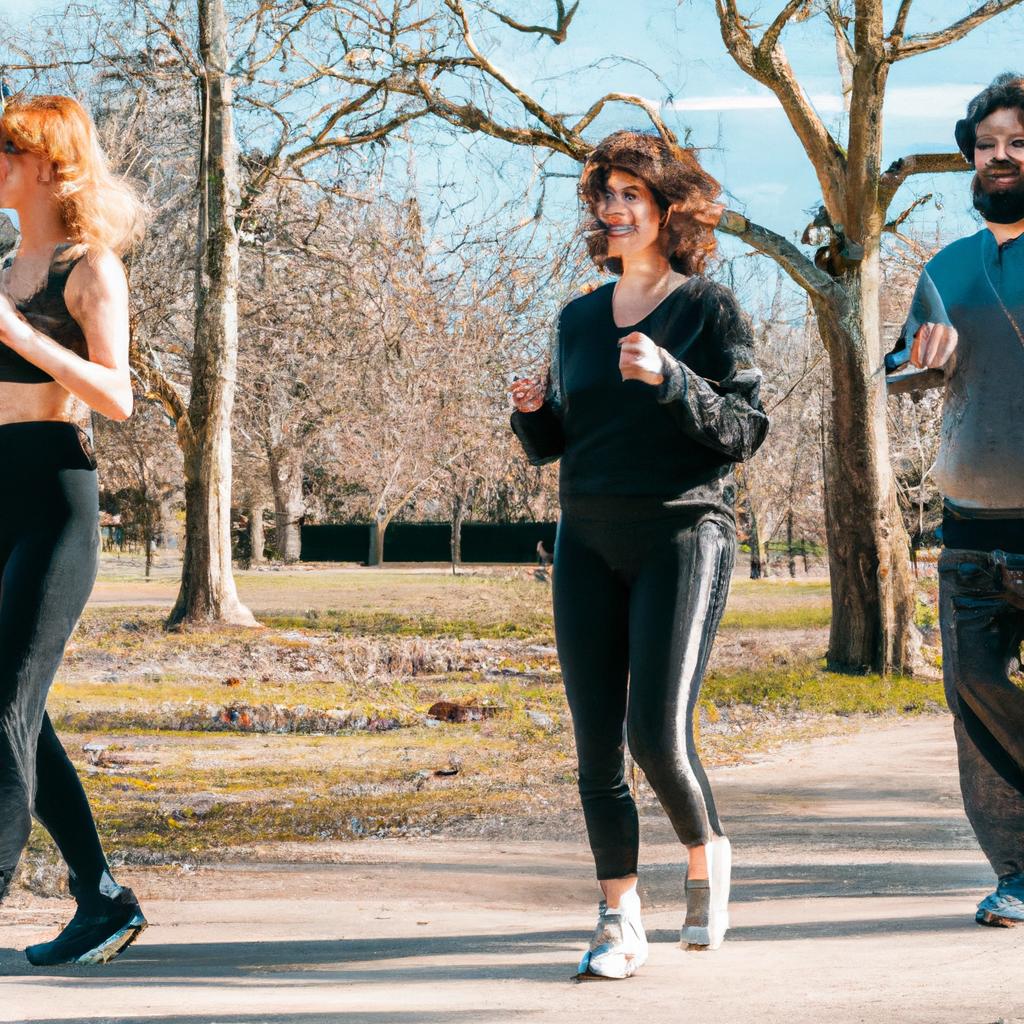
In a world often dominated by high-intensity workouts and rigorous fitness regimes, there’s a humble yet powerful activity that invites us to slow down and reconnect with our bodies: walking. “Step Into Health” explores the multifaceted benefits of this low-impact exercise, revealing how simply putting one foot in front of the other can transform not only our physical fitness but also our mental well-being. From enhancing cardiovascular health to elevating mood and fostering social connections, walking is an accessible and versatile option for individuals of all ages and fitness levels. So lace up your sneakers, take a deep breath, and join us on a journey to discover the myriad ways that embracing this age-old practice can invigorate both body and mind. Whether you’re a seasoned hiker or someone looking to take the first steps towards a healthier lifestyle, this article will illuminate the pathways to wellness that await just outside your door.
Exploring the Holistic Benefits of Walking for Physical and Mental Health
Walking, often considered a simple and accessible activity, holds transformative potential for both physical and mental health. Engaging in this gentle form of exercise can significantly enhance cardiovascular fitness, strengthen muscles, and improve joint flexibility. As a low-impact workout, it can be seamlessly incorporated into daily routines, making it easy for individuals of all ages and fitness levels to start their journey toward better health. Some key physical benefits of regular walking include:
- Improved Circulation: Boosts blood flow, delivering essential nutrients to tissues.
- Weight Management: Helps maintain or reduce body weight when paired with a balanced diet.
- Stronger Bones: Increases bone density, reducing the risk of osteoporosis.
- Enhanced Balance: Improves coordination and reduces fall risk in older adults.
Beyond the physical advantages, walking can significantly uplift mental health by acting as a natural mood booster. The rhythmic motion and connection with nature can provoke a sense of calm, reduce anxiety, and mitigate feelings of depression. Engaging in brisk walks or mindful strolls also enhances cognitive function, encouraging clarity of thought and creativity. Some notable mental health benefits include:
- Stress Reduction: Lowers cortisol levels, promoting relaxation.
- Increased Endorphins: Triggers the release of feel-good hormones, leading to improved mood.
- Social Connection: Encourages social interaction when done in groups, combating feelings of isolation.
- Mindfulness: Aids in practicing present-moment awareness, enhancing overall well-being.

Creating a Sustainable Walking Routine to Enhance Overall Well-Being
Establishing a regular walking routine can contribute significantly to your physical health and mental well-being. To infuse sustainability into this practice, it’s essential to set realistic goals that cater to your lifestyle. **Start small** by selecting a manageable duration, such as 10-15 minutes, and gradually increase as your stamina builds. Incorporate these strategies to create a routine that you’ll enjoy and maintain:
- **Choose scenic routes**: Walking in nature can improve mood and motivation.
- **Schedule walks**: Treat your walking time like any other appointment to help build consistency.
- **Buddy system**: Walking with a friend can enhance accountability and make the experience more enjoyable.
Another key aspect of creating a sustainable practice is to listen to your body and adapt accordingly. Aim for walking at a pace that feels comfortable yet invigorating. Consider using a simple tracking system to monitor your progress and keep your goals in sight. Here’s a straightforward table to illustrate how you can track your walking journey:
| Week | Distance (miles) | Time (minutes) | Notes |
|---|---|---|---|
| 1 | 1 | 15 | Felt energized! |
| 2 | 1.5 | 25 | Added a friend. |
| 3 | 2 | 30 | Discovered a new trail. |

Walking in Nature: How Scenic Routes Boost Motivation and Mood
Stepping outside and immersing yourself in nature can transform an ordinary walk into a rejuvenating experience. As you stroll along scenic routes, the blend of sights and sounds—from rustling leaves to chirping birds—creates an atmosphere of tranquility that can elevate your spirits. This powerful connection to the outdoors can enhance your motivation and foster a deep sense of well-being. Consider how a vibrant landscape can invigorate your senses, making you more likely to lace up your sneakers and explore further. Regular exposure to nature not only promotes physical activity but also encourages mental clarity, letting worries dissolve with each step you take.
Research suggests that engaging with beautiful surroundings has profound psychological benefits. A brisk walk through a picturesque park or along a mountain trail allows for moments of reflection and peace, greatly influencing your mood. Some of the key advantages include:
- Improved mental health: Regularly walking in nature has been linked to reduced anxiety and depression.
- Increased creativity: Natural environments can stimulate imaginative thinking and problem-solving.
- Enhanced focus: A serene setting helps clear the mind, making it easier to concentrate after your walk.
Incorporating these scenic routes into your routine not only enriches your walking experience but also supports overall fitness. Here’s a simple comparison of mood effects based on different environments:
| Environment | Mood Effect |
|---|---|
| Urban Spaces | Neutral to Mild Stress |
| Parks & Gardens | Moderate Happiness |
| Mountains & Beaches | High Joy & Peace |
With every step taken on these scenic pathways, you don’t just pave the way for physical health—you’re nurturing your inner self as well, reinforcing that walking in nature is a vital ingredient in the recipe for a fulfilled life.
Final Thoughts
As we lace up our shoes and step out into the world, it becomes clear that the simplest of actions can yield the most profound benefits. Walking, often overlooked in the pursuit of rigorous workouts and high-intensity regimes, emerges as a powerful tool for enhancing both physical fitness and mental well-being. From improving cardiovascular health to alleviating stress, each step taken is a building block in constructing a healthier lifestyle.
As we conclude our exploration of walking’s low-impact benefits, let us remember that fitness does not need to be a strenuous endeavor; it can be as accessible as the path beneath our feet. So, let’s continue to embrace the rhythm of our footsteps, find joy in the journey, and inspire others to join us in our stride towards better health. Together, let’s turn our daily walks into stepping stones to a brighter, healthier tomorrow. Happy walking!

